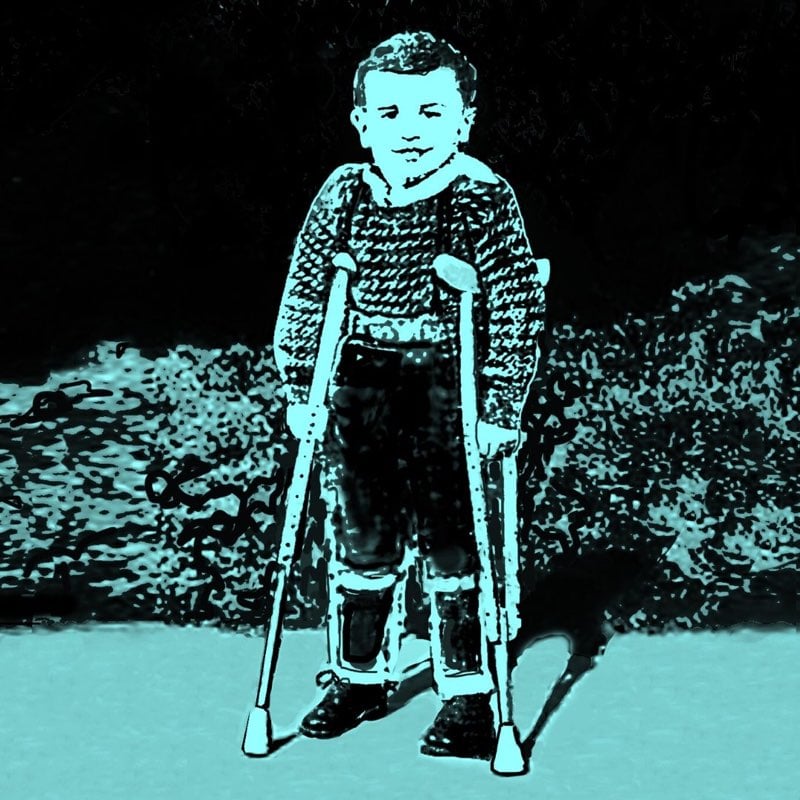Shows

Docs Outside The BoxThe TikTok Ban In The U.S., Marriage & Relationships During Residency. #445SEND US A TEXT MESSAGE!!! Let Drs. Nii & Renee know what you think about the show!We navigate the wild world of TikTok, examining its status in the U.S. and the extreme measures some take to stay connected. Tune in to also learn balancing medical careers and personal relationships and how we navigate this tightrope. We talk about the sacrifices and communication needed to align career aspirations and relationship goals. Join us for a mix of light-hearted stories and serious insights that you won't want to miss. Timeline0:00:00 Introduction ...
2025-02-071h 05Pitt MedcastCells don't really work like machines
Clifford Brangwynne, a Princeton bioengineer, is the 2023 recipient of the Dickson Prize in Medicine, the University of Pittsburgh School of Medicine's highest honor. He found that biomolecules like proteins can condense into droplets inside of cells, much like oil separating into droplets in water. Scientists are now figuring out how these biomolecular condensates play a role in cell function—which could open new avenues for treating diseases like Alzheimer's and ALS.
You can find an excerpt of this conversation in the fall 2023 issue of Pitt Med Magazine. Andrew Doerfler conducted the interview and edited the ep...
2023-11-0713 minPitt MedcastMr. YukMr. Yuk, the poster child for poisoning prevention, debuted in 1971. On the occasion of his 50th birthday, we caught up with Mr. Yuk’s creator, Dr. Richard Moriarty (MD ’66), a Pitt School of Medicine alumnus and longtime associate professor of pediatrics.
This episode was based on a 2003 Pitt Med magazine story, “It’s Not Easy Being Green,” written by Sally Ann Flecker, and adapted and produced by Elaine Vitone. Our executive producer is Erica Lloyd. Music by Blue Dot Sessions. Pitt Med magazine is published by the University of Pittsburgh Office of University Communications and Marketing and the School of Medicine
2021-03-2116 minPitt MedcastLike Daughter, Like MotherLike Daughter, Like Mother
Mothers harbor cells from their children decades after pregnancy—and throughout their bodies. These shared cells from pregnancy, do they help or harm women? In February 2020, we sat down with Dr. R. Swati Shree (Res ’14), a Pitt alum who is an expert in this fascinating yet little-known quirk of our biology, known as microchimerism. Our interview was recorded live from the Sci-Mic Podcast Stage at the annual meeting of the world's largest general scientific society, AAAS (American Association for the Advancement of Science).
The print version of this interview appears in Pitt...
2021-02-0714 minPitt MedcastEvolving SituationEpisode Notes
Evolutionary biology is at the center of some of the most vexing public health challenges of our time: cancer, antibiotic resistance and disease outbreaks. Pitt's Vaughn Cooper has been studying evolution in action for more than a decade. To his amazement, he’s beginning to think it may be possible to predict evolution.
In Dec. 2020, we sat down with Cooper to discuss how the emerging field of evolutionary medicine is helping to contain the COVID-19 pandemic.
This episode was inspired by these stories in our magazine, Pitt Med:
“What Bug’s in Y...
2021-01-1132 min
Pitt MedcastPart 3: Meet Anantha ShekharShekhar on what it takes to be a great teacher and a great leader, and what he’s learned about supporting flourishing partnerships. And then, in a second interview recorded remotely in May 2020, he shares his thoughts on the road ahead in the time of COVID-19.
2020-05-2915 min
Pitt MedcastPart 2: Meet Anantha ShekharIn Part 2 of our series on Dr. Anantha Shekhar, he talks of the hope and promise of the future of medicine.
2020-05-2918 min
Pitt MedcastPart 1: Meet Anantha ShekharIn this special three-part series, Pitt Medcast introduces Anantha Shekhar—Pitt’s new senior vice chancellor for the health sciences and the John and Gertrude Petersen Dean of the School of Medicine. In February 2020, we sat down with him in Pitt Studios to get to know him and hear his insights on the future of medicine and Pitt’s place in it. Then, in May, we called him to talk again, remotely, about the road ahead for Pitt in the post-COVID-19 world.
In this episode, Part 1, the MD/PhD and nationally recognized educator, researcher, entrepreneur and leader in med...
2020-05-2909 min
Pitt MedcastBONUS: Perspective on two frightening outbreaksSunday, April 12, 2020, is the 65th anniversary of the announcement that the killed-virus polio vaccine--developed here at the University of Pittsburgh--was safe and effective. To mark the occasion, we bring you the perspective and advice of someone who has faced two frightening disease outbreaks up close. Meet David Harding, a Pitt instructor in the School of Health and Rehabilitation Sciences. VIDEO SLIDESHOW: https://vimeo.com/406209306
2020-04-1104 min
Pitt MedcastRelationship AbuseTOUGH QUESTION | How can the medical community help women who are experiencing intimate partner violence?
There’s a common assumption that domestic violence must involve broken bones or bruises. But much of intimate partner violence is in the emotionally controlling behaviors and psychological abuse. In this episode, women’s health experts discuss other ways they’re learning that abuse happens. For instance, a partner might trash his girlfriend’s medications, sabotage the car before a doctor’s appointment or use substances to control her. Our guest physicians discuss new strategies that are helping to prevent women from falling th...
2020-04-0141 min
Pitt MedcastPolio PioneersWhat was life like before childhood vaccines? In this episode, hear from people who grew up in the shadow of a crippling disease—among them, “polio pioneers,” schoolkids from the clinical trials of Jonas Salk’s killed-virus vaccine. Their accounts tell the story of how ordinary people helped win the struggle against one of the most crippling diseases in history.
This Pitt Medcast was inspired by “Among My Souvenirs,” a story from the August 2005 issue of Pitt Med magazine. Written by Elaine Vitone. Production by Janine Faust, Margaret Palko, and Elaine Vitone with additional research by Elaina Zachos and L...
2019-12-1317 minPitt MedcastAutism and Emotional RegulationPopular accounts of autism often portray people with the condition as emotionless automatons. Yet more than a decade of work has convinced Pitt psychologist Carla Mazefsky that emotional dysregulation—which is the inability to control emotional responses—plays a key role in autism. Mazefsky specializes in kids on the far end of the autism spectrum who are prone to aggression. This Pitt Medcast was inspired by Carrie Arnold’s story from the Fall 2018 issue of Pitt Med magazine, which was a finalist for a 2019 Golden Quill Award from the Press Club Of Western Pennsylvania. Read by Elaine Vitone and Luisa Garbow...
2019-06-2800 minPitt MedcastImperfect PitchHow useful is a genetics report from a company like 23andMe to my health? How do we separate hype from reality as these companies ramp up direct-to-consumer ads, social media, and celebrity influence campaigns? Our guests, Jeremy Berg and Mylynda Massart, discuss how the heavy consumer pitch can cloud medical practice, science, and understanding and the road ahead for medical education as personal genomics becomes increasingly relevant in the clinic. You don’t want to miss Pitt Medcast’s first-ever live taping—from the 2019 meeting of the American Association for the Advancement of Science in Washington, D.C. Our guests: Pitt’s...
2019-03-1300 minPitt MedcastLabors and LossesWhy are new mothers dying at an alarming rate in this country? We sat down with Jada Shirriel, the CEO of Healthy Start, which is charged with improving maternal and child health in Allegheny County, and three Pitt professors who’ve been appointed to Pennsylvania’s Maternal Mortality Review Committee. We wanted their perspectives on why the incidence of maternal deaths and morbidity is so bleak in this country compared to other industrialized nations and what can be done to spare families from these tragedies. The print version of this story (bit.ly/2w4SfQj) appeared in the Winter 2018/19 issue of P...
2019-02-1100 minPitt MedcastThe High Resolution LifeIn this episode, we revisited our Summer 2015 magazine story(bit.ly/sternglass_pittmedmag), featuring the University of Pittsburgh’s late, great Ernest Sternglass. His work made possible the first videos from the moon, and he pioneered digital radiology. His activism helped stop atomic bomb testing. His correspondence with Albert Einstein has been called one of the 20th century’s most important disregarded pieces of science. Sternglass led an extraordinary life. Written by Michael Fitzgerald. Produced by Elizabeth Martinson with Elaine Vitone. Our executive producer is Erica Lloyd. Sound effects courtesy of NASA and freesound.org. And special thanks to Pittsburgh’s own...
2018-11-0100 minPitt MedcastWhen Fred Met MargaretIn this episode, we revisited and remixed our Winter 2014 magazine story (http://bit.ly/Wnzy6c) featuring the University of Pittsburgh’s Margaret McFarland, Fred Rogers’s little known mentor who played a big role in shaping him and his show behind the scenes. Written by Sally Ann Flecker. Produced by Elaine Vitone. Our interns for the episode were Jessica Boddy and Ali Greenholt. Our executive producer is Erica Lloyd. Sound effects courtesy of freesound.org. Special thanks to the Fred Rogers Company and also to the Beagle Brothers(http://bit.ly/2pr8gf8), Pittsburgh’s own country and eastern band...
2018-03-2000 minPitt MedcastInside the World of OCDEvery day, Hilary Zurbuch grappled with a nagging fear that if she didn’t look just right, something bad would happen. Zurbuch lives with obsessive compulsive disorder, a tug-of-war between intrusive, often fearful thoughts and repetitive rituals she’s devised to control them. Although the reasons for OCD are unknown, psychiatrist and researcher Susanne Ahmari at the University of Pittsburgh is using clinical observations and new neuroscience tools to extricate a deeper understanding of the disorder. This Pitt Medcast was inspired by Cara Masset’s award-winning cover story from the Fall 2015 issue of Pitt Med magazine (http://www.pittmed.health.pitt.e...
2017-04-0600 minPitt MedcastHow the Nose KnowsWith funding from the National Science Foundation, a multi-institutional team uses blind scent-tracing tests and other experiments to better understand how animals are able to localize odors. Pitt’s Nathan Urban and Bard Ermentrout are part of this olfaction faction. They’re hoping the investigation will inform new technologies; it may even provide insight into neurological disorders like Alzheimer’s, autism, and Parkinson’s. This Pitt Medcast was inspired by a story (bit.ly/pittmed_smell) from the Summer 2016 issue of Pitt Med magazine (bit.ly/pittmedmag). Written and read by Elaine Vitone. Produced by Elaina Zachos with Elaine Vitone. Our exec...
2017-02-1900 minPitt MedcastLet's Talk About Sex“My doctors all knew about it. ... Strangers, like people who just happened to be in the office when I was there, knew more about me than I did.” In this episode, the first in our new Read Aloud series, we delve into biology that isn’t binary, and the challenges it brings. This Pitt Medcast was adapted from our Spring 2015 issue story about the family of Pitt med alumni Arlene and Mark Baratz, who went to medical school and trained at Pitt in the 1980s. Written by Micaela Corn with Erica Lloyd. Read by Micaela Corn. Produced by Elaine Vitone and Mi...
2016-03-2900 minPitt MedcastCornea-copiaCorneal blindness affects millions worldwide. To date, the only treatment available is a corneal transplant. But potential new cures are coming from unexpected places—including wisdom teeth! A husband-and-wife team at the University of Pittsburgh has been working toward the dream of regrowing new corneal tissue for years—that’s Jim Funderburgh, a professor of ophthalmology, and Martha Funderburgh, a research assistant in his lab and a corneal transplant recipient herself. Working with Sayan Basu, a physician-scientist in Hyderabad, India, and Fatima Syed-Picard, a Pitt postdoc-turned NIH award recipient, the Funderburghs are now developing ways to repair corneal damage—and even pre...
2016-02-1500 minPitt MedcastItchPain and itch have an interesting relationship. If you are bitten by a mosquito, you can ease the itch by scratching your skin. And if you take a dose of a powerful painkiller like morphine, you're likely to itch. The interrelatedness of these two experiences has made deciphering their neurobiology a real puzzler. In this multilayered soundscape, Sarah Ross, a PhD assistant professor of neurobiology at the University of Pittsburgh, discusses her recent breakthroughs with this head scratcher. The team is now beginning to trace the circuit for itch, the least understood of our somatic senses. This Pitt Medcast was...
2013-10-2500 minPitt MedcastTinnitusAs recently as 20 years ago, tinnitus—a ringing, buzzing, hissing, or other noise that afflicts people who’ve been exposed to loud sounds—was thought to be an affliction of the ear, but imaging studies eventually proved its source is in the brain. Recently, University of Pittsburgh investigator Thanos Tzounopoulos, an expert in brain plasticity, uncovered the molecular mechanisms of this long-misunderstood condition, now the most common service-associated disability for veterans of the wars in Iraq and Afghanistan: When hearing is lost, the central nervous system tries to adapt and maintain a certain level of activity, filling the void with these...
2013-06-2800 min